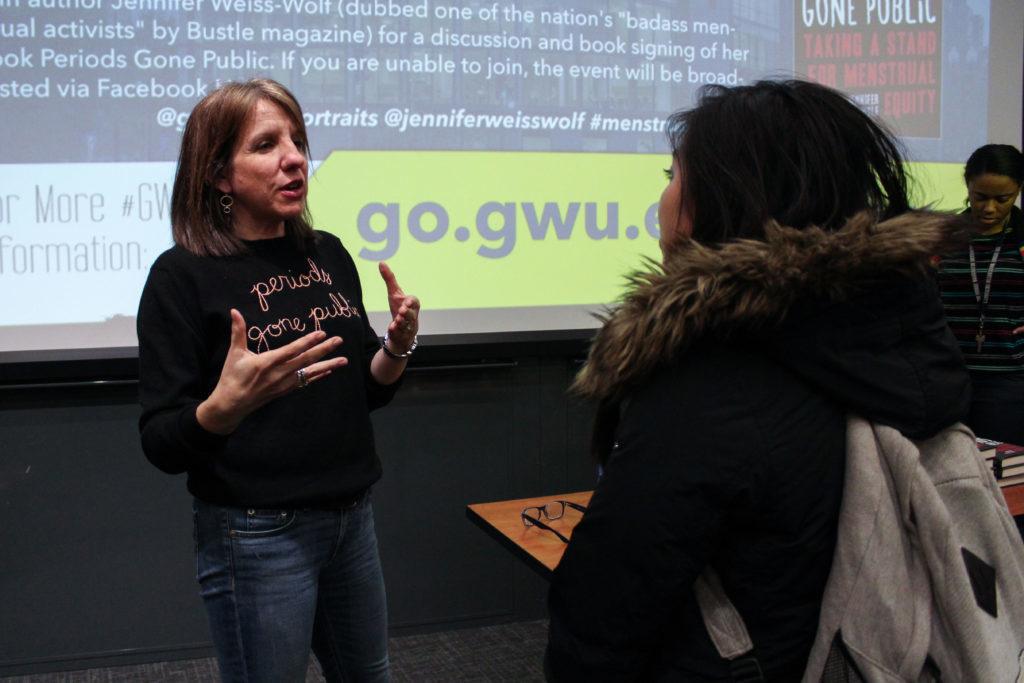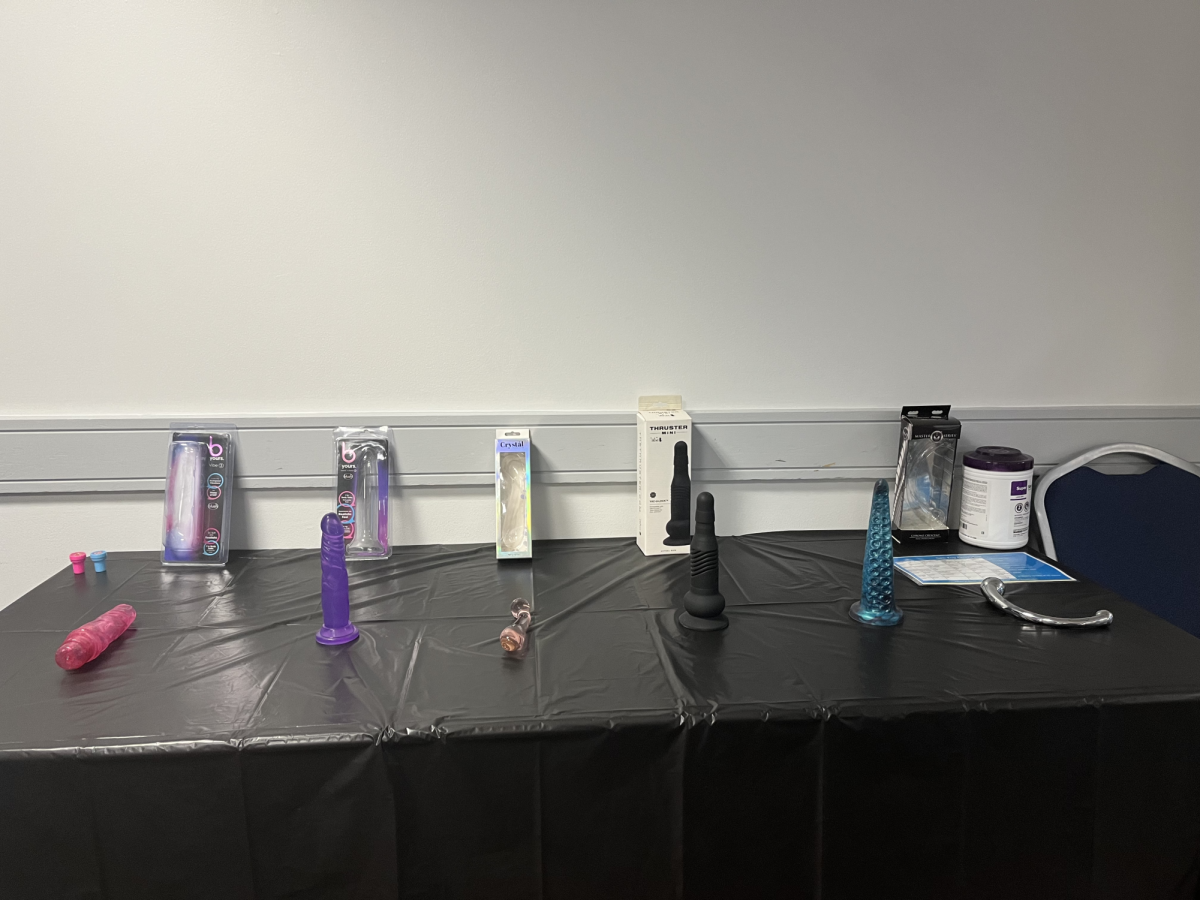Author and activist Jennifer Weiss-Wolf discussed her recent book about the fast-moving menstruation equity movement at the Milken Institute School of Public Health Tuesday.
The book, “Periods Gone Public,” was released in October and explores the political and societal attitudes toward periods throughout history. The book analyzes the issue around the world and looks at how attitudes might change going forward. The event was held as part of the school’s programming for National Public Health Week.
The discussion was led by Tara Pokras, a master’s degree student studying public health with a focus on global health. For the past year, Pokras has photographed and interviewed women to share their often-unheard menstrual stories to shatter the stigma of menstruation.
People for Periods, a student-led project that provides free pads and tampons in bathrooms around campus, joined Weiss-Wolf at the event. Student Association President Peak Sen Chua, who helped lead the People for Periods initiative between the Feminist Student Union, The Store and the Student Association, spoke at the beginning of the event about the project and its importance.
In case you missed the event, here’s a breakdown:
1. The menstrual policy agenda
Weiss-Wolf said historically, pushing the menstrual health agenda was repeatedly unsuccessful in legislation. House representatives repeatedly tried to create legislation that would put forth “more stringent testing,” like bills that study the chemicals in feminine hygiene products.
“That bill has been reintroduced 10 times in 20 years and gotten nowhere,” Weiss-Wolf said.
Weiss-Wolf said that public attention to sales tax on menstrual products is unfolding around the world in places like Kenya and Canada, which eliminated the taxes in 2004 and 2015, respectively. She said increased attention shows it is possible to create similar legislation in the U.S.
To stop the tax on tampons, she created a national petition in 2015 to inform legislators about the issue and call for change.
“For the population that menstruates, lack of access to education and understanding and a completely marginalized and stigmatized environment around menstruation has made it such that people who can’t afford these products don’t even have the power to say so,” Weiss-Wolf said.
2. Reverse the taboo
Weiss-Wolf said the emerging movement is unstoppable, but it wasn’t until 2015 that the previously taboo topic of menstruation entered public discourse.
“It wasn’t just me,” Weiss-Wolf said. “There were lots of people who were coming to this realization simultaneously.”
She said that the conversation around on menstruation was growing through op-eds, social media and think pieces. Previously, periods received little to no coverage from mainstream media outlets. Weiss-Wolf said she particularly remembers noticing a change after seeing a tampon and the words “there will be blood, get over it,” displayed on the cover of Newsweek magazine in April 2016.
“They’d never done anything like that before,” Weiss-Wolf said. “I don’t think any magazine had done anything like that before.”
3. Periods shouldn’t be unspoken
Weiss-Wolf said it is crucial that people talk to each other in person or on social media platforms about menstrual equity. She said to start discourse on menstrual health in a public sphere was considered a “radical action,” but people need to have the discussions about periods anyway.
Weiss-Wolf encouraged attendees to discuss their ideas and take political action to create an environment where everybody is talking about menstruation. She said attendees could pass out petitions or go to their local school board to make their voices heard.
“Go to where ever the rule-making entity is in your life and say, ‘How do you think about menstruation?’” she said. “How do you deal with the fact that, again, a big part of your population is managing menstruation while living their lives?’”





